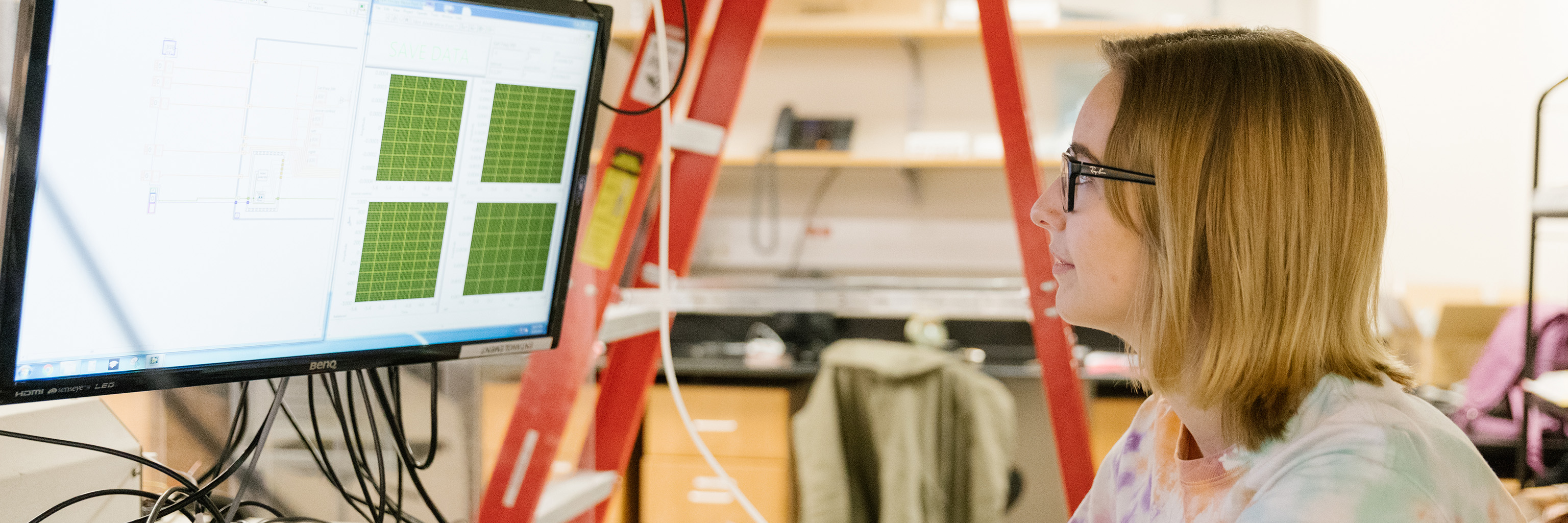The Physics Department at Indiana University, Bloomington, strongly embraces the principles of diversity, equity, and inclusivity in all aspects of its mission, consistent with the vision articulated in the IU Diversity Statement. These principles are crucial for upholding the freedom, dignity and well-being of all individuals in the department and the communities served by it. Additionally, diversity is essential for the cultivation of a versatile, dynamic and creative scientific and educational environment. IU Physics proudly engages in dedicated efforts to improve diversity and inclusion, including through vigorous participation in departmental, institutional, and national initiatives.
Diversity & Inclusion
- See More
The ideals underlying the pursuit of physics as a quest for understanding the physical world and disseminating knowledge of it leaves no room for inequity, intolerance, and exclusivity; such injustices are not tolerable. Yet, it must be recognized that physics as a discipline has a poor record in this regard, and that insufficient attention has been focused on the essential work of removing barriers and promoting equity. Progress in this work requires both cultural and structural changes to the way physics departments function. Therefore, IU Physics also strongly supports the statement adopted by the American Physical Society (APS), which urges all in the physics community to dedicate effort to bring about systemic change.
The department values its international and multicultural community and is committed to providing a welcoming environment for all faculty, staff and student members, irrespective of age, color, disability, gender identity and expression, genetic information, national origin, race, religion, sex, sexual orientation, or military status. While acknowledging the extent of change needed to reach this ideal, the department celebrates the examples of diversity in its history and is uplifted by the broad engagement of its membership in ongoing efforts.
As we educate our students, our department will focus on building a community of belonging through equitable teaching, collaborative research, and human connections.
At present, IU Physics counts 34 tenure-track faculty members with primary appointments, of whom four are women, plus six research faculty, including one African-American scientist. While diverse in national origin, including members hailing from Mexico and Argentina as well as from Europe and across Asia, the department ranks improving racial, ethnic and gender diversity among its faculty as a high-priority goal. The graduate program roster currently comprises 84 students, of whom 17 are women; of the 57 domestic students, three identify as Black/African-American and 12 as Hispanic/Latino. Similar numbers are found in the undergraduate program: of 77 physics majors, 19 report as female, one as Black/African-American, one as American Indian/Alaska Native, and 4 as Hispanic/Latino. For both programs, the percentages match or exceed national averages for physics. The significant presence of underrepresented minority (URM) students in our graduate program is a direct consequence of the department's establishment of an APS Bridge Program site.
The commitment of IU Physics to progressively enhance and sustain diversity in its membership and activities it sponsors, as well as that in the eld overall through its instructional and outreach missions, is represented by adopted policies and concrete efforts. A standing departmental Diversity Committee meets regularly to evaluate these and consider possible new initiatives. Members of the department connect with professional societies such as the National Society of Black Physicists (NSBP) and the Society for Advancement of Chicanos and Native Americans in Science (SACNAS). The department funds the Leo Falicov Fellowship for the recruitment of minority graduate students.
One key element of the department's effort to increase recruitment and retention of a more diverse graduate student population is its designation as one of six APS Bridge Program sites. This program aims to address the nationwide shortfall in the fraction of URM physics undergraduate degree recipients who continue on to Ph.D. programs, relative to their non-minority counterparts. It does this through the establishment of transitional M.S. degree programs at selected institutions that admit students who either have not applied or have not been admitted to any physics Ph.D. programs. Since its sponsorship by the APS in 2015, IU Physics has welcomed 23 students into its Bridge Program (IU-BP). Twenty-one of these students identify as members of underrepresented racial/ethnic groups, and eight students identify as women or non-binary. To date, three students have earned the Ph.D. degree, and 17 other students have earned their M.S. degrees (or have satisfied the degree requirements), of whom 11 are continuing at IU for their Ph.D. studies. The IU-BP has been transformative: aside from improved diversity within the graduate program, the IU-BP students impact our outward-looking efforts, including undergraduate student recruitment and community outreach, especially in elementary and secondary education venues.
New initiatives include departmental participation in the APS Inclusion, Diversity and Equity Alliance (APS-IDEA) Network, as well as the American Institute of Physics TEAM-UP Implementation Workshop series. The latter effort has a nationwide goal of doubling the annual number of African-American undergraduate degree recipients in physics and astronomy by 2030. Locally, the department has developed posters celebrating the contributions of physicists from underrepresented groups, including individuals with direct connections to IU physics. In 2020, the department established the Homer Neal Diversity Student Support Fund, with substantial contributions from past and present members of the department. This fund has been named to recognize one of its most distinguished undergraduate alumni, who also served as a member of the IU physics faculty (1967-1981), and later became the first African-American President of the APS. Discussions taking place within the IU APS-IDEA team and broadly across the department are generating additional innovations aimed at systemic change to departmental climate essential for building and sustaining diversity.



 The College of Arts
The College of Arts